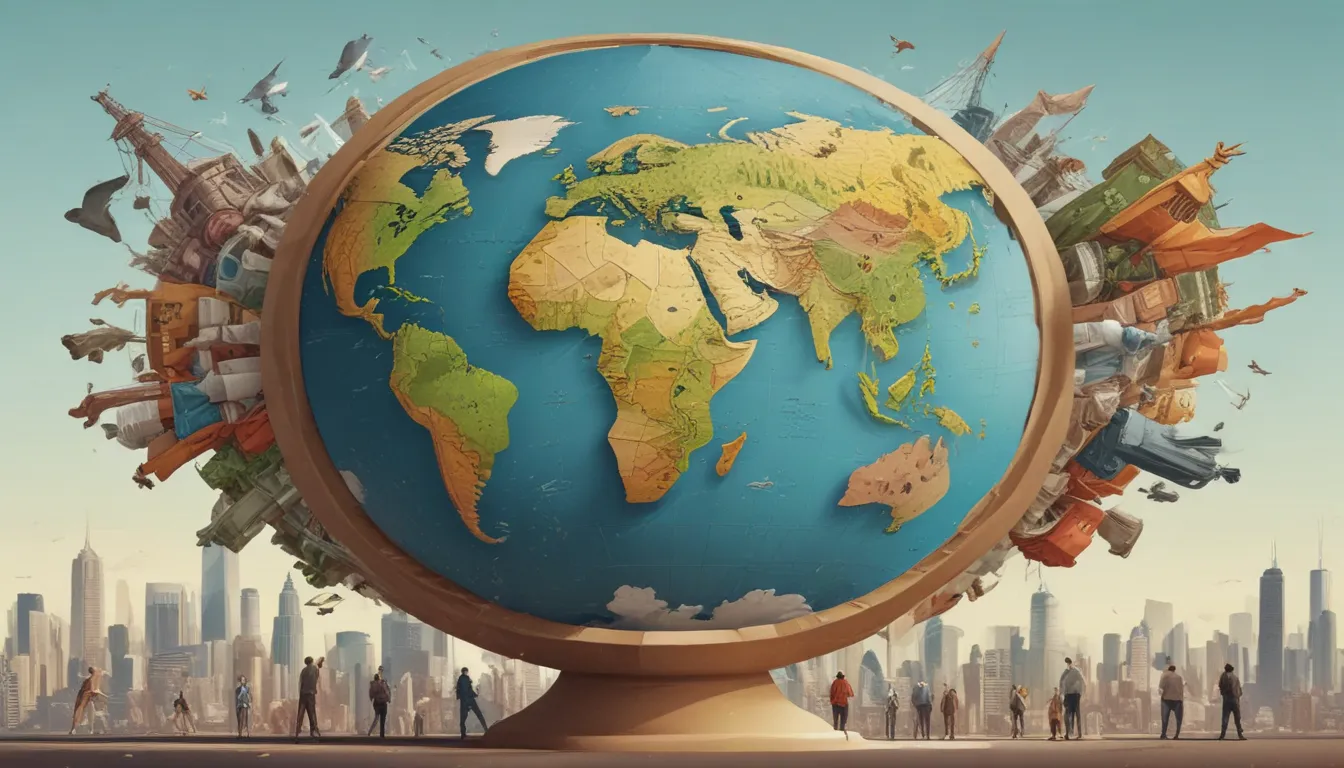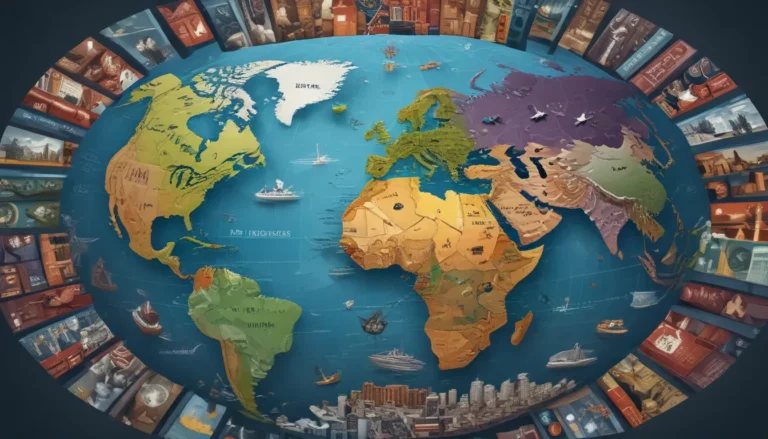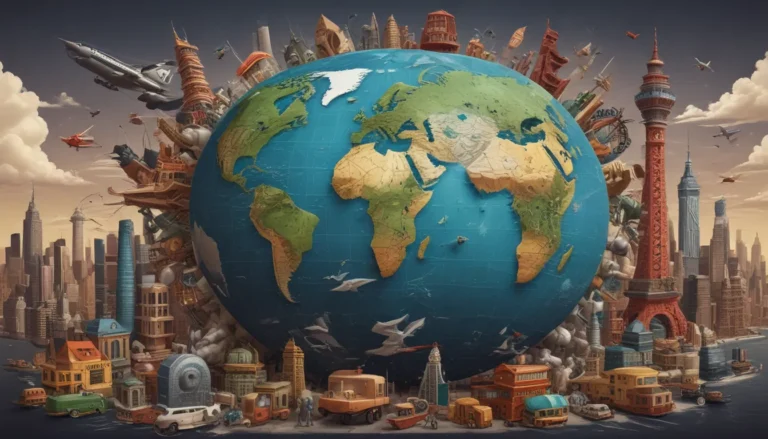A Note About Images: The images used in our articles are for illustration purposes only and may not exactly match the content. They are meant to engage readers, but the text should be relied upon for accurate information.
In this digital era of globalization, the world presents itself as a mosaic of economic disparities, where contrasting realities coexist, shaping the lives of individuals and societies across the globe. From the thriving metropolises of developed nations to the struggling regions of the developing world, the spectrum of wealth distribution is vast and complex, reflecting a tapestry of challenges and opportunities.
Understanding the Global Wealth Gap
The Widening Chasm
Year after year, the gap between the wealthiest and most impoverished individuals is widening, sparking concerns about social inequality and its implications for societal well-being. This trend underscores the pressing need to address the root causes of this disparity and foster more equitable economic development globally.
The One Percent Dilemma
A striking statistic reveals that the top 1% of the global population owns a staggering 44% of the world’s wealth. This concentration of resources in the hands of a privileged few underscores the stark reality of limited access to opportunities for the vast majority of individuals worldwide.
Disparities in Developing Nations
Economic inequality is most pronounced in developing countries, where systemic barriers to education, healthcare, and employment perpetuate cycles of poverty. The lack of access to essential resources further marginalizes vulnerable populations, hindering their potential for economic advancement.
Impact of Economic Disparities
Gender Pay Gap Perseverance
Despite advancements in women’s empowerment, disparities in pay between genders persist in many countries, underscoring ongoing challenges in achieving gender equality in the economic sphere.
Educational Implications
Economic disparities directly impact educational opportunities, as children from disadvantaged backgrounds struggle to access quality education, perpetuating intergenerational cycles of poverty and limited social mobility.
Healthcare Inequities
Lower-income individuals often face barriers to healthcare access, resulting in poorer health outcomes and reduced life expectancy. The economic divide exacerbates disparities in health and well-being, highlighting the urgent need for equitable healthcare systems.
Multinational Corporations and Inequality
The expanding influence of multinational corporations can exacerbate economic inequalities by exploiting resources, labor, and tax loopholes in developing nations, further widening the wealth gap between global conglomerates and local communities.
Interconnected Dynamics
Socio-Political Ramifications
Economic disparities are intrinsically linked to political instability, as marginalized populations in unequal societies voice their grievances through civil unrest, conflicts, and revolutions. Addressing economic inequality is essential for fostering social cohesion and political stability.
Technological Challenges
The digital divide amplifies economic disparities, as those lacking access to digital resources face barriers to employment opportunities and participation in the global economy. Bridging this technological gap is crucial for promoting inclusive economic growth.
Environmental Equity
Climate change disproportionately affects economically disadvantaged communities, exacerbating vulnerabilities to extreme weather events, food insecurity, and environmental degradation. Economic disparities intersect with environmental issues, necessitating inclusive solutions for sustainable development.
Addressing Economic Disparities
Call to Action: Closing the Gap
Eradicating economic disparities requires collaborative efforts from governments, international organizations, and individuals to implement policies that promote equitable resource distribution, inclusive education, and sustainable economic opportunities.
Navigating the Challenges
From tax evasion to offshore havens, systemic issues such as complex financial schemes contribute to widening economic disparities. Tackling these challenges demands transparency, accountability, and international cooperation to promote fair financial practices.
Cultivating Cultural Diversity
Unequal access to resources can impede cultural expression and representation among marginalized communities, perpetuating dominant narratives and eroding cultural diversity. Fostering inclusivity and empowerment is essential for preserving cultural heritage and promoting social cohesion.
Building a Fairer Future
Mental Health Implications
Economic disparities can impact mental health, leading to increased stress, anxiety, and depression among individuals facing financial uncertainties and limited opportunities for social mobility. Addressing mental health needs is integral to promoting well-being in economically unequal societies.
Innovating for Equity
Limited access to resources and capital hampers technological innovation and entrepreneurial activities, hindering progress in creating solutions that benefit society as a whole. Promoting inclusive innovation is vital for driving sustainable economic development.
Global Collaboration for Change
To achieve sustainable development goals and narrow the wealth gap, global stakeholders must collaborate on initiatives that promote equitable economic opportunities, social inclusion, and environmental sustainability. By working together, we can create a more just and equitable world for all.
Conclusion: Towards a Balanced World
In conclusion, global economic disparities present a complex web of challenges that require collective action and innovative solutions to address. By understanding the root causes and impacts of these disparities, we can pave the way for a more equitable and inclusive global economy. Through dialogue, cooperation, and advocacy, we can work towards a future where every individual has the opportunity to thrive and contribute to a fairer, more sustainable world.
FAQs: Exploring Global Economic Disparities
-
What are global economic disparities?
Global economic disparities refer to the unequal distribution of wealth, resources, and opportunities among countries and individuals worldwide. -
What causes global economic disparities?
Global economic disparities stem from various factors, including historical legacies, political systems, trade policies, and global economic structures that shape wealth distribution. -
How do global economic disparities impact developing countries?
Developing nations often bear the brunt of global economic disparities, facing challenges such as poverty, limited access to education and healthcare, and inadequate infrastructure that hinder economic development. -
What measures can be taken to address global economic disparities?
Addressing global economic disparities requires a multifaceted approach, including policies to reduce income inequality, increase access to education and healthcare, promote fair trade practices, and foster sustainable development across nations. -
Can individuals contribute to reducing global economic disparities?
Individuals can make a difference by supporting ethical businesses, advocating for fair trade practices, volunteering or donating to organizations working towards poverty alleviation, and raising awareness about the importance of addressing economic inequalities. -
How can countries collaborate to reduce global economic disparities?
Countries can work together through international organizations, agreements, and initiatives to foster economic cooperation, provide financial assistance to developing nations, and tackle systemic issues that contribute to economic disparities on a global scale.
By embracing the challenges and opportunities presented by global economic disparities, we can strive towards a more just, equitable, and sustainable world for generations to come. Let us embark on this journey of change with a shared vision of prosperity and progress for all.






